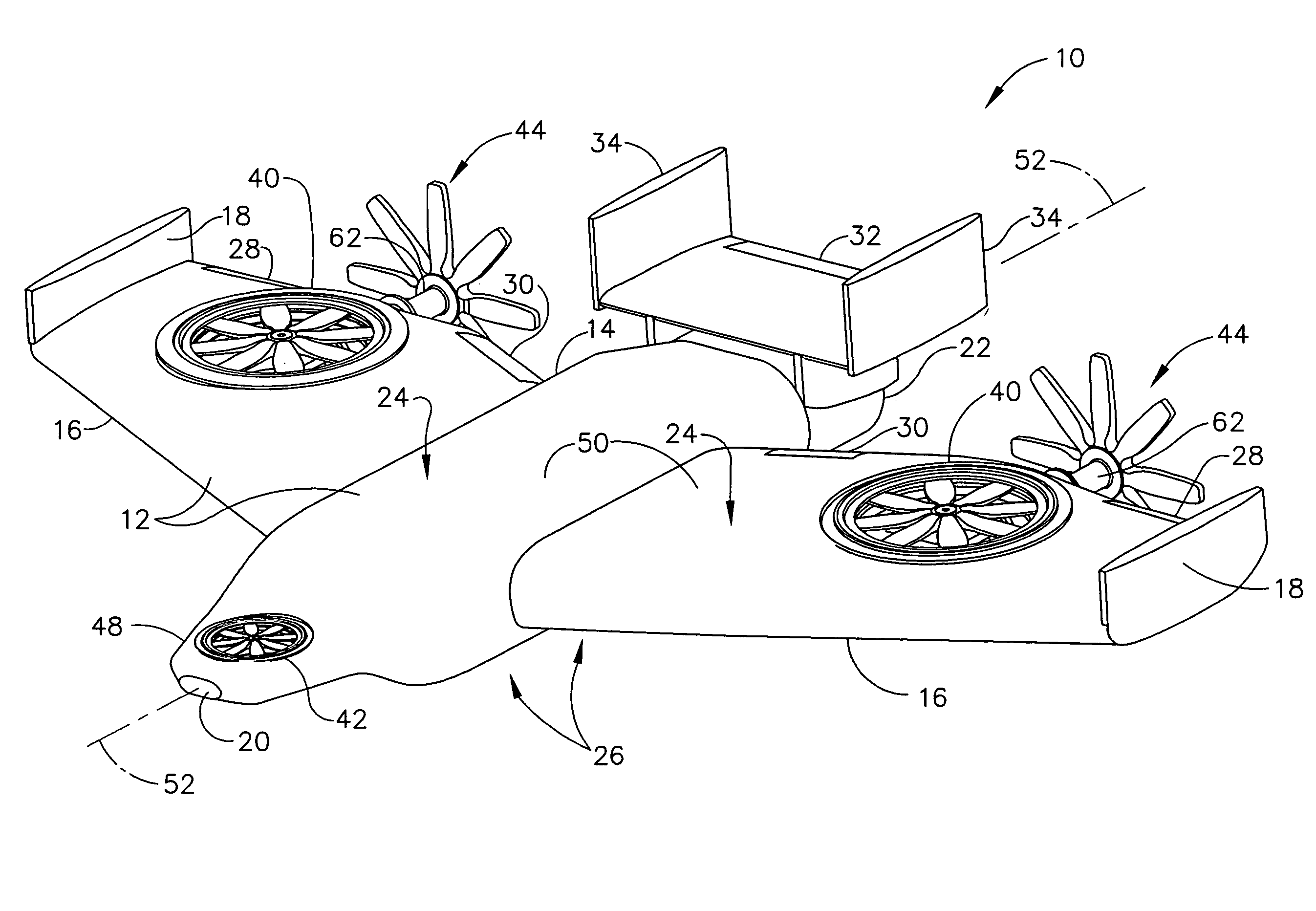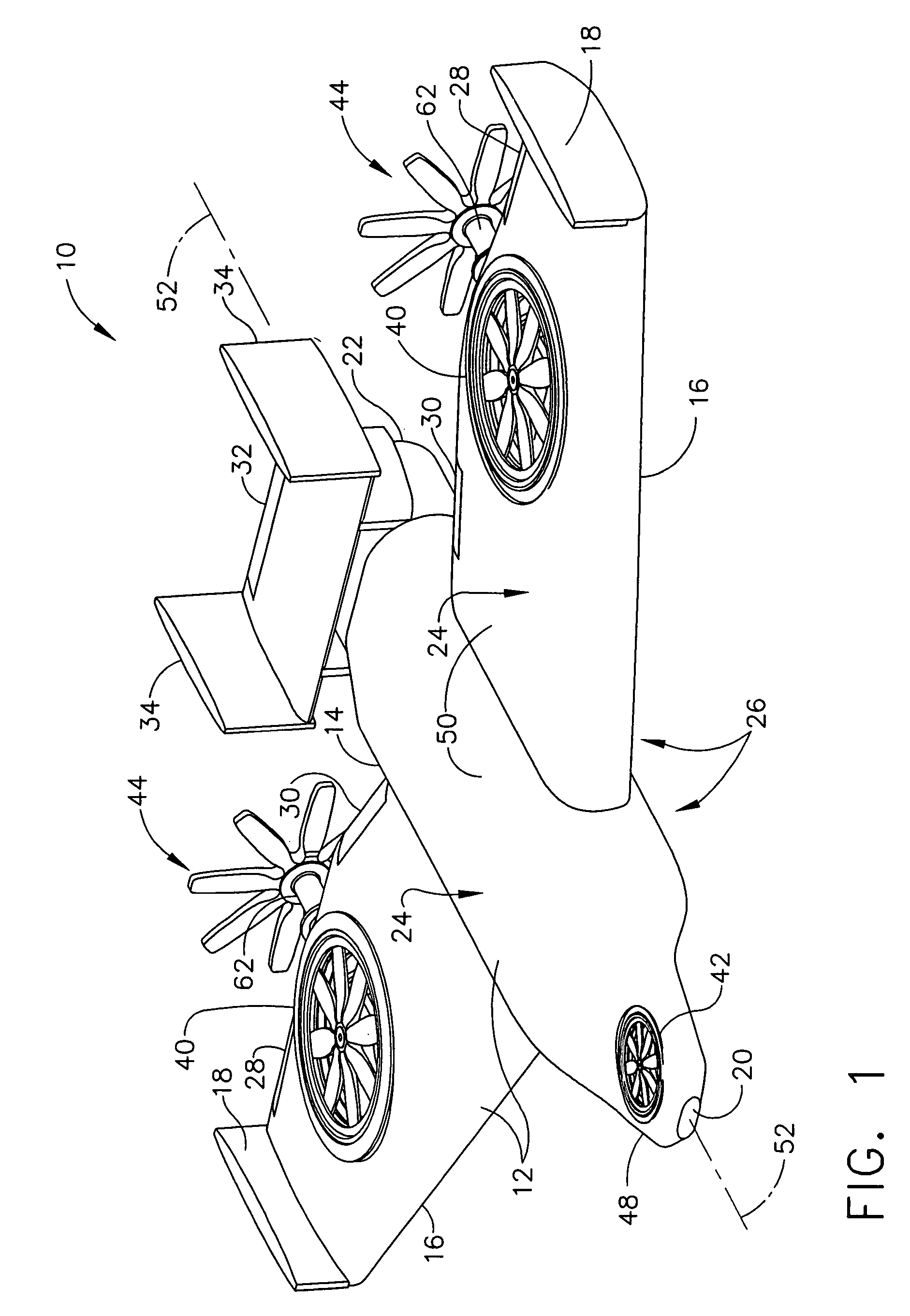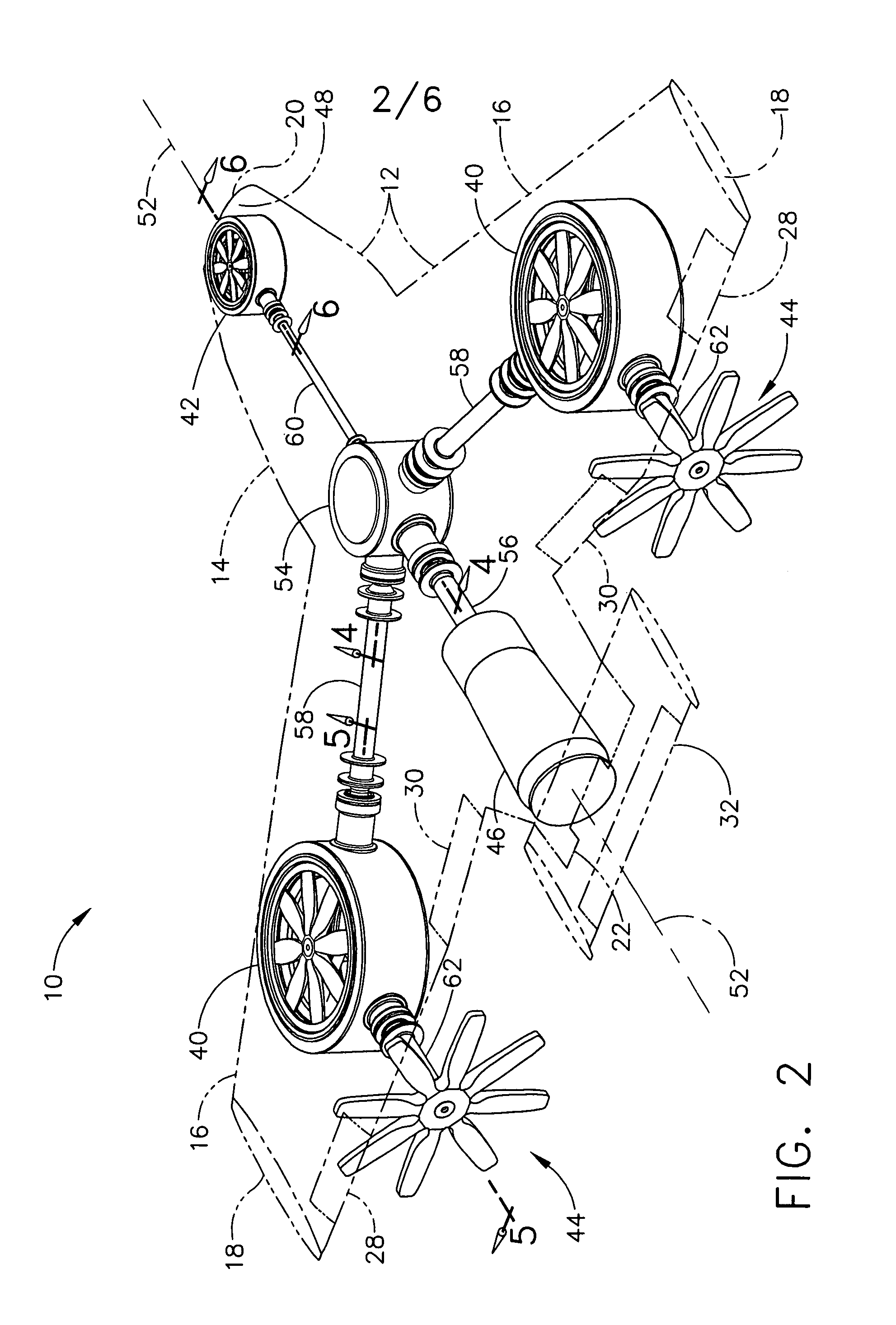Aircraft capable of vertical and short take-off and landing
a technology of short take-off and landing and aircraft, applied in vertical landing/take-off aircraft, aircraft navigation control, gearing, etc., can solve the problems of insufficient performance, more widespread and successful use, and complex complex relationship between one or more horizontal driving and one or more vertical driving of vehicles
- Summary
- Abstract
- Description
- Claims
- Application Information
AI Technical Summary
Benefits of technology
Problems solved by technology
Method used
Image
Examples
Embodiment Construction
[0021]The present invention relates to aircraft, and more particularly to aircraft capable of vertical and short runway take-off and landing. Referring now to the figures, and more particularly to FIG. 1, aircraft according to a first embodiment of the present invention is designated in its entirety by reference number 10. The aircraft 10 has an airframe 12 including a fuselage 14 and at least two wings 16 extending laterally from the fuselage to wingtips 18 at their respective outer ends. The fuselage 14 extends between a forward end 20 and an aft end 22. Although the fuselage 14 may have other lengths without departing from the scope of the present invention, in one embodiment the fuselage has a length extending between the forward end 20 and the aft end 22 of between about 5 feet and about 40 feet. Although the aircraft 10 may have other wingspans without departing from the scope of the present invention, in one embodiment the aircraft has a wingspan extending between the wingtip...
PUM
 Login to View More
Login to View More Abstract
Description
Claims
Application Information
 Login to View More
Login to View More - R&D
- Intellectual Property
- Life Sciences
- Materials
- Tech Scout
- Unparalleled Data Quality
- Higher Quality Content
- 60% Fewer Hallucinations
Browse by: Latest US Patents, China's latest patents, Technical Efficacy Thesaurus, Application Domain, Technology Topic, Popular Technical Reports.
© 2025 PatSnap. All rights reserved.Legal|Privacy policy|Modern Slavery Act Transparency Statement|Sitemap|About US| Contact US: help@patsnap.com



